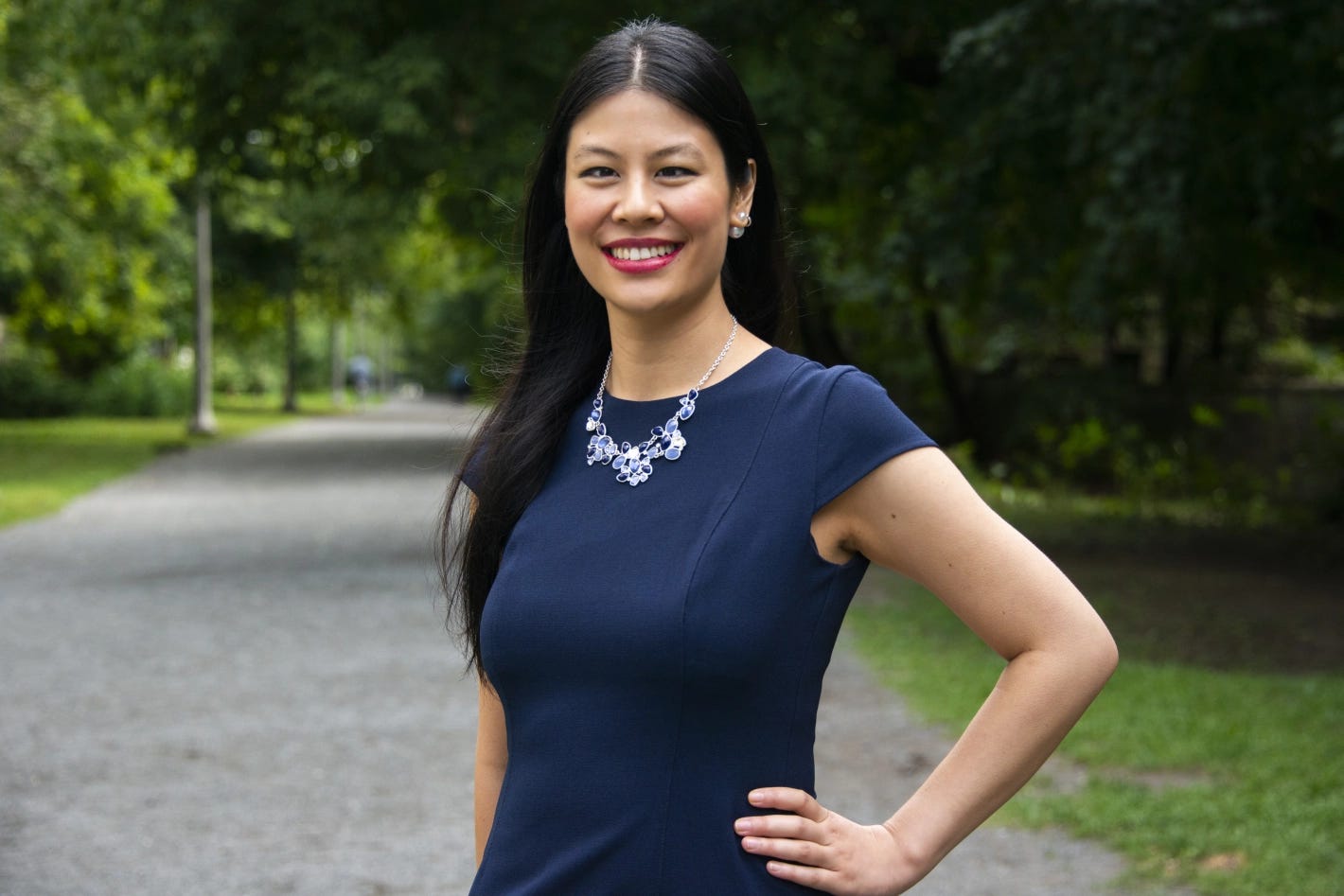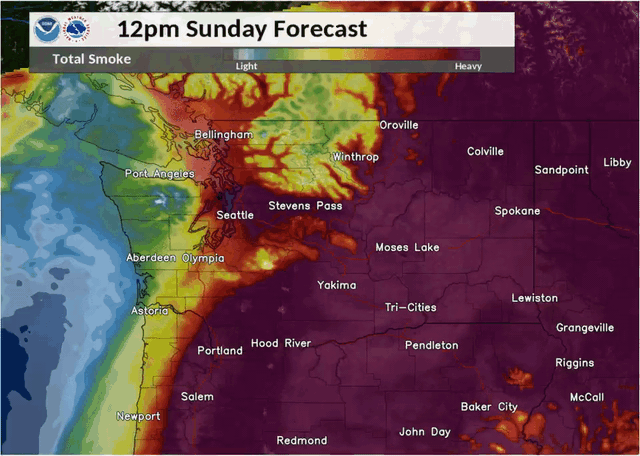Divine Innovation covers the spiritual world of technology and those who shape it. Published once every three weeks, it’s written by Adam Willems and edited by Vanessa Rae Haughton. Access the full archive here.
If you’ve ever been on Twitter: I’m so sorry.
But if you’re a Twitter veteran, you probably know what doomscrolling is, most likely because you do it. The portmanteau is pretty easy to decipher for those not ~*in the know*~. But this definition from University of Washington Medicine can bring us all up to speed:
Doomscrolling is when you can’t stop reading upsetting news on your phone. It’s often an attempt to control the uncontrollable.

[This UrbanDictionary entry works just as well.]
There’s a pandemic. Protests against white supremacy and police brutality continue, with various political demands far from acknowledged or met. The West Coast—like, all of it—is in flames or in smoke. This list of crises goes on, seemingly ad infinitum.
Doomscrolling is the naturally conditioned response to this confluence of calamities and injustices that seems (to many people) to have come to a head in 2020. A contemporary attempt to avert apocalypse.
In a “don’t boo, vote!” political culture, being an informed-while-quarantined reader and citizen can seem like one’s remaining moral and political weapon. It’s a politics of transcendence in which information alone can resolve the longstanding structural issues that have brought about this symptomatic and synchronized clusterfuck. That the user experience of social media sites feeds into and amplifies this penchant for chronic info-exposure is no coincidence.
When framed in this way, it might feel embarrassing to admit to being a chronic doomscroller. Spending four hours a day reading takes of other people’s takes of other people’s takes of burning issues belies both a sense of panic and a search for fleeting control. You’re not a sheep, you’re not alone (like hi, I’m here).
With the anxiety that this practice induces, UW Medicine is right to approach doomscrolling as a public health concern. They recommend the following for treatment:
Limit the amount of time you [doomscroll], the number of sources you read and the time of day you scroll (don’t do it right before bed).
But did UW Medicine cite their sources when defining doomscrolling or dishing out a prescription? No—embarrassing, bad.

[Photo by Kristin Foster]
UW Medicine should cite and thank Karen K. Ho. First and foremost because she’s an incredible writer and reporter; she now covers global finance and economics at Quartz. I started following her byline after her feature on Consumer Reports, and so can you!
Karen has carried “doomscrolling” as a term to its rightful place in our parlance. And she’s done so with astounding empathy and care, encouraging us to take care of ourselves by using tech-mediated information superhighways in moderation.
In other words: put your phone down.
Since early April—and with only one day off—Karen has posted daily at least one Twittervention (i.e. intervention via Twitter). Karen’s posts vary in style and length.
Sometimes they’re refreshingly blunt:
Others offer alternatives that exist beyond apocalypto-cyberspace:

Karen’s regular interventions have taken doomscrolling from an unknown neologism to an increasingly common and valid word (used by licensed doctors in Washington State, no less). But the repetitive nature of Karen’s practice, the human flourishing it encourages, and the community it builds, made me think of her tweets as a ritual. Were these posts a religious practice? Were they a political campaign? Are they the LifeAltert™ of 2020?
Megan Goodwin, a brilliant scholar cited in Divine Innovation [3.0], has something to add here. In a recent interview with yours truly, Goodwin warned against describing a group or practice as “religious” without paying attention to how insiders describe themselves. It’s shallow and potentially harmful to just say, “Uh, this is religious, no further questions.” So rather than project some outside framework onto Karen’s practice, I wanted to hear about her philosophies and ethics in her own words. I hoped her answers might reveal ways of thinking I had overlooked and point to what good can come from our time online, or from walking away.

Karen began her doomscrolling-related Twitter posts just a month into the first shutdown phase of the coronavirus pandemic in the US (a.k.a. the month formerly known as April). But as much as her practice is a gentle callout or warning to log off, it has also built community. More than 12,000 people have started following her on Twitter; don’t confuse this for influencer-worship:
I built my own community to talk about tough moments and hold each other accountable to what is still within our own control. Mostly, I wanted to inspire and remind other people how to help themselves and help others. I was surprised how much it crossed communities and demographics.
Her “daily reminders,” as Karen calls them, have clearly done more than convey information. But as this anti-doomscrolling collective grew, so did the scope of her advice. She makes sure to offer constructive information, encouraging followers to do neck stretches during the day, or take a break from sitting in front of a computer screen. This intention shifts gears to a place of accountability rather than authority:
I needed to do things like eat better, drink more water, and slouch less. I simply figured it was a way of holding myself accountable, and helping others who could also use the reminder. Sometimes I use it to prevent myself from subtweeting or saying mean things, too.
There’s clearly an ethics at play. Karen wants others to be well, and this giving cycle of care can germinate and multiply both inside and outside the self. It is certainly inspiring—but could it also be a wee bit theological, as a treat? [Note: not exceptionally so, no.]
I went to a public Catholic school for 12 years, have done some silent meditation based on Buddhist philosophy, and part of me believes in some sort of afterlife that's similar to The Good Place. Mostly it's just about making the most out of the time we have and being really mindful of how social media can be harmful physically, emotionally, and mentally.
But there’s a bit of a paradox. Karen invites us to be mindful, walk away from our screens, to stop scrolling, to regain some perspective and agency by refusing the technologies that pull us in. But she does so through those very same technologies. I wondered how she approaches social media, and whether she thinks it can be reformed or redeemed:
I think social media is a lot like food—without serious thought and moderation into what we are consuming, as well as regulation and strong values from the platforms themselves, social media can be much more harmful than helpful in our daily lives. I think it would take a lot of work to reform or alter many platforms like Twitter and Facebook to be more caregiving, but that doesn't mean we shouldn't try or push for additional changes and policies. Other platforms also don't have the volume of participation. It would be like trying to start an entirely new FDA without addressing the current one's problems, or a new branch of a major church that had serious leadership issues.
So perhaps a more apt title for Karen’s anti-doomscrolling role is “tech-nutritionist.” As with the management of any medium of potential energy—food, social media—a commitment to less doomscrolling isn’t automatically a radical political act. It won’t in and of itself fix social problems. But it’s a palliative practice that might keep us functioning long enough to try.
However, there is a literally and metaphorically expanded range of vision that can come from approaching technology and news with some intention (your eyeballs thank you). There’s room to not just ingest information, but to reflect on it. In these spaces, we can turn attention into action, belief into practice; we can see what’s outside with greater clarity as well as what’s within. Do we indulge in a belief that our attention is a sacred weapon? What does it say about our attention—the ways that we do or do not value it—if we offer it so monotonously to the same sites, ones that profit off our lingering, largely thoughtless presence through automagic? When we let what we see sit within us and with us, can we turn information into knowledge? What political alternatives, what solidarities arise when we open this door?
It’s a task of biblical proportions, and a little less doomscrolling won’t answer or resolve these questions alone. I asked Karen what it would take for her to stop reminding people online to walk away from the doom:
I think it would take a lot fewer people dying on a daily basis, a vaccine, as well as fewer simultaneous geopolitical events and/or natural disasters related to climate change. I also report on economics, so I'm extra aware of how many people are unemployed, poor, working fewer hours, and suffering from pay inequality. Those things require huge changes and several years of progressive policies to reduce in a meaningful way.
I think it's hard to say, but I definitely will have a better feeling about when the need feels less urgent. I definitely don't think I will stop before the end of the year, or even in the next six months.

~*A little postscript*~
The lessons one can draw from this interview are in the eye of the beholder (viewers like you!). Maybe Karen’s answers speak to how practices that encourage human and spiritual wellbeing don’t require religious frameworks and intentions. Or maybe her comparison of technology to food points to the Internet’s now-essential place in many people’s daily lives, an irreplaceable nourishment or addiction.
In no particular order of importance (my brain is lasagna), here are some snippets of last Sunday, when I wrote up this issue of Divine Innovation. I hope they point to doomscrolling-adjacent questions that can be useful for you, too.
Feel free to add your own little grab bag of thoughts in the comments. [The real spiritual world of technology is the friends we made along the way!]
1.
Some of the day revolved around this computer model, waiting for the smoke to clear. Its prophecy was nothing but smoke (yikes) and mirrors.

2.
If time is money and time is also of the essence, does this make money of the essence? If so, where can one find this essence?
3.
A passage of the Qur’an cited in Fazlur Rahman’s Major Themes of the Qur’an:
When it is said to them: Do not corrupt the earth [with your negative deeds], they say: We are only doing reform! Beware! They are the corruptors but they do not know that. (2:11-12) (33)
What is worthy of reform? When is reform but self-deception?
4.

I saw bioluminescent water for the first time ever; a friendly crab walked up to us. What good, what light, hides beneath the surface if you look for it?


